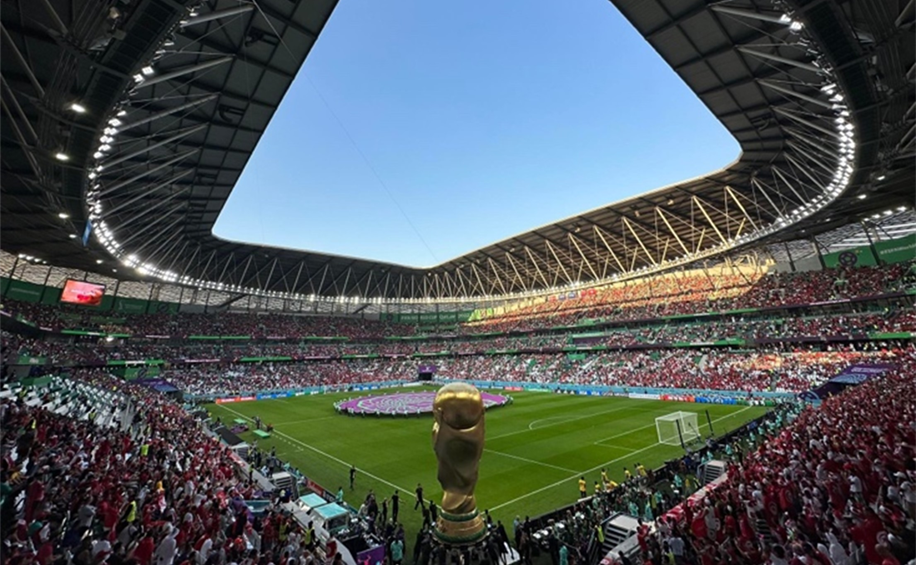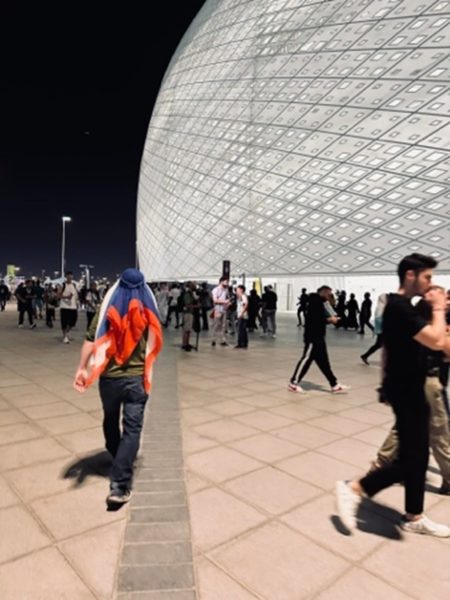In 2010, three major events happened in my life.
I moved to Doha to work in Education City. The Arab Spring exploded in Tunisia. And Qatar won the World Cup bid.
Since then, I have witnessed massive changes in the Gulf region, and none more than in Qatar.
When I first arrived in this wealthy Gulf state 12 years ago, the plight of the migrant workers who came from South Asia to Qatar to work in construction, security, and the service industry was under scrutiny for exploitative practices. The Kafala sponsorship system in the Arab Gulf gave companies almost complete control over migrants.
Winning the World Cup put a spotlight on these issues. In the intervening years, legislation was passed to help protect these workers from predatory employers and unsafe working conditions.
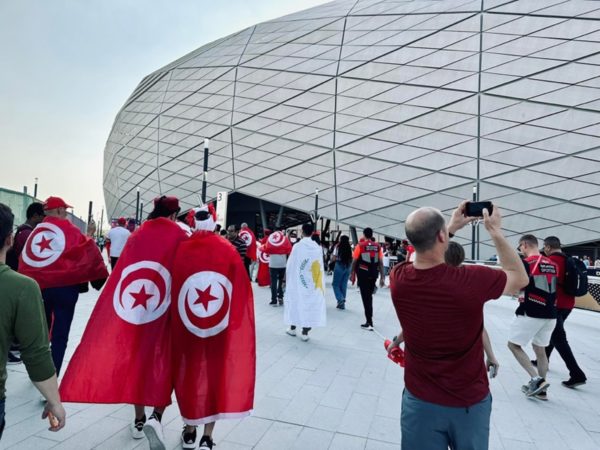
The Kafala system has been abolished. A minimum wage was instituted. Strict rules now exist about working during the hot summer months. An International Labor Organization office opened here. Companies can now be blacklisted for workplace fatalities.
In the days leading up to the World Cup, the Western mainstream media portrayal of Qatar did not focus on any of the amazing progress or enormous changes in the last 12 years.
Instead I saw many of these media outlets regurgitating incorrect statistics from a very old and subsequently debunked article in The Guardian about worker deaths. Lazy journalism matched with anti-Muslim sentiment pushed me and my friends to roll our eyes in frustration at this coverage and its ungrounded assumptions.
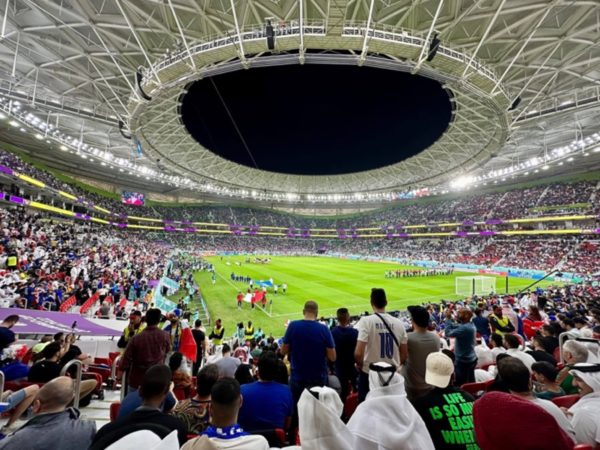
During the World Cup, the news pivoted to the One Love armband.
Western mainstream reporters fixated on the fact that homosexuality is illegal here.
But when I consider the anti-trans agenda and the constant attacks on the gay community in the United States, it all felt a bit like the pot calling the kettle black. That sentiment is widely shared here. Who are they to throw stones when gay rights are only a recent achievement?
Change takes time, political stability, and dialogue. A good portion of the Arab world confronts instabilities or lives in the midst of war or revolution. Consider LGBQT rights in Qatar: no one is arrested or executed for homosexuality. Capital punishment is only applied to a small number of extremely serious crimes and homosexuality is not one of them.
This persistent and distinctive lack of truth in the reporting I was hearing from the West had all of us here shaking our heads in wonder. Does anyone fact check anything?
I was lucky enough to get tickets to several football matches. I was blown away by the sense of unity, optimism, and joy shared by all those in the stands.
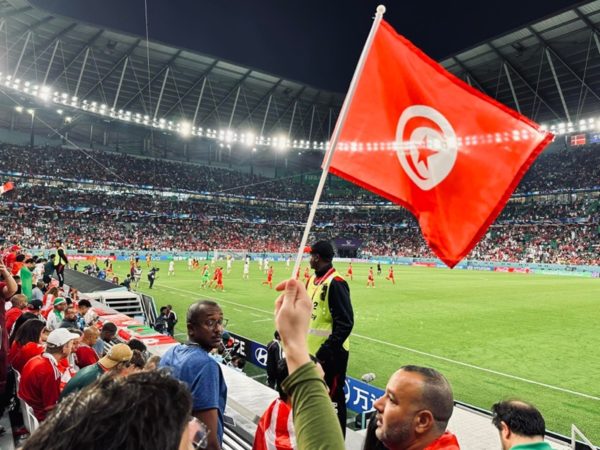
The Tunisian game I attended was positively electric. Their fans were infectiously energetic. At the entrance to one stadium, local college students held up signs of support for Palestine. At another game, a Syrian man was handing out cups of karak, a mixture of tea, milk, and sugar.
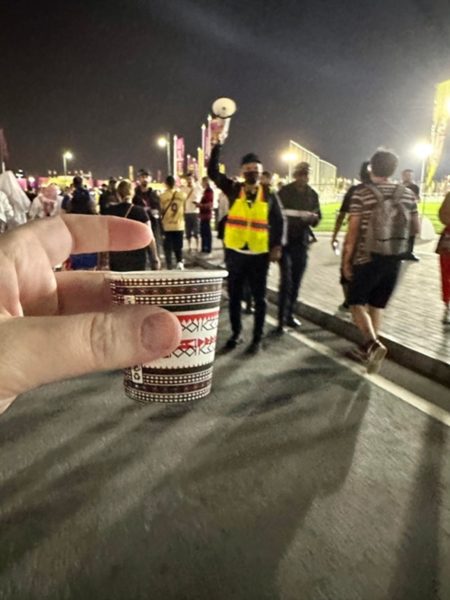
All around Doha, people are smiling, putting that famous Qatari hospitality on display. I’ve seen locals help fans adjust their country’s flag ghutrahs, the traditional head scarf worn by Khaleejis, repurposed by local shops so anyone can cheer on their team in stylish head gear. They could have been annoyed that their clothing was appropriated by the fans from far and wide. I saw the opposite: genuine pleasure to share their culture.
One cannot ignore how Islamophobia contributes to the false narratives and sensationalism surrounding these games.
Rather than fall back to this tired Middle East-phobic rhetoric, I urge journalists and content creators to research, investigate, and interview sources themselves before jumping on the bandwagon of misinformation.
Listen to the invigorated Arab and African voices bound together in pride at hosting the first World Cup in the MENA (Middle East North Africa) region.
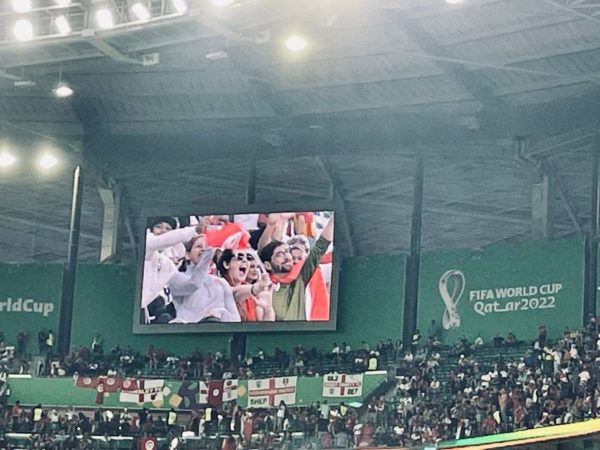
We live in incredible times of rapid change in the Arab World.
And that is the real story of the Qatar World Cup.
Elizabeth Hoffman taught film production at the University of South Carolina before moving abroad to work at Northwestern University in Qatar. She enjoys travel and life as an expat in Doha with her partner and two young children. She is currently working as a freelance editor and coordinator at her daughter’s Montessori PTA. She graduated from the Roy H. Park School of Communications at Ithaca College in 2004.
All photos illustrating this piece were photographed by Elizabeth Hoffman.

